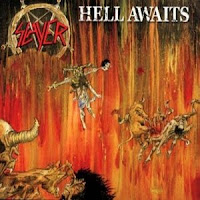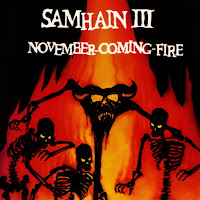Back in 2010, Christian philosopher Tim Mawson published an interesting paper under the title, "Praying to stop being an atheist." From the abstract:
In this paper, I argue that atheists who think that the issue of God's existence or non-existence is an important one; assign a greater than negligible probability to God's existence; and are not in possession of a plausible argument for scepticism about the truth-directedness of uttering such prayers in their own cases, are under a prima facie obligation to pray to God that He stop them being atheists. [link]
Recently, Mawson was called upon by Justin Brierly, host of the Christian radio/podcast show Unbelievable, to help turn his challenge into an unofficial 'experiment.' During September and October 2012, each atheist who signed up was asked to pray sincerely to god for a few minutes a day for a full length of 40 days. In that time, several contributed their thoughts to the show's forum, to Brierly by email, and through their own individual blogs. Finally, the participants were then asked to report their belief (or lack of belief) at the end of the 40-day period. The results can be found on the show's website [link], and are discussed both in text and over the course of two episodes. Out of 71 participants, only 2 converted after praying.
I've been a regular listener to Unbelievable for several months now, but my reaction to the atheist prayer experiment has been mixed ever since it was announced. To their credit, Mawson and Brierly were immediately forth-coming on the unscientific nature of the project. They also acknowledged the concerns of many Christians who felt that the experiment was too open to interpretation, perhaps even in violation of the command to not put the lord to the test. So, long before things began, it was made abundantly clear that, whatever the results, no conclusion can be rationally drawn from the study about whether or not god exists. One might wonder then, as I have, what the point of the atheist prayer experiment actually was.
To hear Mawson and Brierly pontificate over the whole thing, you'll find out that the point was something as vague as appreciating the other side, opening up minds, etc. That's all well and good, but I can't shake the suspicion that there's more to it than that. How many times have you heard a Christian tell a non-believer that if they'd only humbly go before god and ask him to reveal himself, then he would? In the second episode of the show covering the experiment, Brierly reads a remark from someone who expresses much the same attitude: 'God will give an answer. It may take days, months, or even years, but he will answer.' In fact, Justin goes so far as to quote Matthew 7:7 in defending the experiment against accusation that it's testing god: "Ask and it will be given to you; seek and you will find; knock and the door will be opened to you."
When I was a believer, I shared this conviction that god would always answer the sincere seeker. To many people, prayer is not the Magic 8 Ball which some atheists characterize it as, but it's a direct, reliable, and consistent means of communicating with the wise and all-powerful creator of all things. It would be unthinkable that god should ignore or refuse any honest heart that wants to know him. If someone persists in disbelief, it must be that they were either insincere or god is just taking his time to reach out to them. You can find a diverse mish-mash of this on a thread about the experiment on the Orthodox Christianity forum [link]. To these believers, prayer - when it's done out of humility and sincerity - is absolutely 100% foolproof. Let me say that again. Absolutely 100% foolproof.
So when Mawson and Brierly comment on the value of the atheist prayer experiment, I can't help but think that they have cards they're not showing. No, the study was not intended to prove the existence of god, but more atheists using the foolproof prayer method means more souls stand the chance of being won for god. It also means more of an opportunity to talk to atheists about the 'proper' way to pray, how god responds to prayer, and so on. The atheist prayer experiment is just another evangelism tactic, under the clever guise of an impartial study. It's no secret that atheists are big on science, and what says science more than "experiment"? I have to wonder why they picked a name that sounds so scientific, instead of a more general one (which would be more accurate, as they admit), like the Atheist Prayer Challenge, Ask an Atheist to Pray, or Pray the A Away!
Mawson's paper isn't any better. He uses the analogy of being in a dark room where multiple people have told you they previously met someone (we'll call him Tom) and spoke to him, yet you have so far not met this person. Wouldn't it be prudent of you to call out for this Tom, rather than to assume he doesn't really exist?
Well, there are all kinds of problems with this analogy. I've known very few Christians who claim to have heard an audible voice. To make the analogy more fitting, then, say that these other people mention that Tom communicates via telepathy, and that's how they know he exists. However, simply meditating and trying to reach him telepathically won't work unless you approach him like a student approaches a teacher. If you're not to Tom's liking, he won't say hi, so be sure you're humble when you try to contact him... and cross your fingers too, just in case he doesn't see your humility the way you do. But don't expect an immediate response either, even if you are the pinnacle of humility. Tom's a very busy man and knows what's best for you - although you two have never officially met - so he will greet you all in good time. Suddenly it starts to become more prudent to question these Tom-ites than to try your own luck at telepathically reaching their strange and fictional sounding friend.
I would also disagree with Mawson's contention that atheists are "not in possession of a plausible argument for scepticism... about uttering such prayers in their own cases." The notion that we have to experience something ourselves in order to justifiably hold a contrary position is demonstrably false. Each year, the legal system rightly convicts countless criminals on the basis of DNA, phone records, video recordings, testimony, and other kinds of evidence, while the judge and jury have no personal experience of the crime at all. It seems to me that Mawson carelessly swipes away centuries-worth of arguments both for and against the existence of god, all so that he can prioritize one of the arguments for god that is extremely subjective. We can't look at the evidence neutrally - you have to come onto our turf and do it our way.
Why stop at prayer, though? Why not just say that atheists are obligated to accept the holy spirit into their lives, since it's the only way to truly experience god, according to many Christians? It's doubtful as many atheists would have responded to that sort of challenge, and thus the evangelizing purpose would be lost. But prayer is 'harmless' and it doesn't require any commitment. As Mawson says several times, praying and not experiencing god can be used as evidence against god for atheists, so you've got nothing to lose! Rings a little familiar to Pascal's Wager, doesn't it? Of course, Mawson doesn't think getting no answer is actually an argument against his god, so it seems his aim is really about recruitment, not making any real significant point.
Finally, let's talk about the results. In the two episodes of Unbelievable that discuss the experiment, Kendra and Kelly - the converts - are contrasted with several atheists who have remained unbelievers, despite some of them having odd and interesting experiences. What you hear from each group says a lot. Kendra came to the conclusion that belief in god is more satisfying to her life than disbelief. It seems to have had little to do with prayer, which prompted some listeners to suggest that she be disqualified. Kelly, on the other hand, pregnant with her first child, prayed to god and one day witnessed a rainbow that she interpreted as a sign. She describes her former disbelief as stemming from the fact that she didn't feel she was being answered when she would pray before. The atheists who remain unconvinced offered possible alternative explanations to their experiences and reflected on their interactions with believers.
Yet another issue I have with this 'experiment' is that it misses the ultimate point atheists always try to drive home. It's not about atheism versus religion. It's not even about doubting god versus faith in god. For many atheists, their opinion on god and religion is the result of critical thinking and skepticism, which, judging from the interviews, it doesn't appear that Kendra or Kelly have much of, to be frank. I have never denied that some atheists do convert, and I don't think any atheist has denied that fact. But I am a skeptic first and an atheist second. My conclusion is not from a bad experience with Christians, or from feeling ignored when I would pray; it comes from years of study and thought, as sounds to be the case with many of those in the experiment whose views have not changed. Now, I don't deny that some intelligent atheists have become believers, but I think one has to already be in a fairly receptive and uncritical state of mind to convert after a mere 40 days (or less) of on-again-off-again prayer.
In sum, the atheist prayer experiment was a resounding success at being the only thing it was ever truly going to be: another slick marketing tool for the Christian faith.












